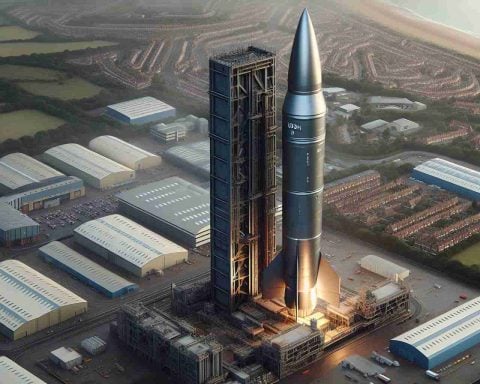The Federal Aviation Administration (FAA) has authorized SpaceX to resume flight operations of its Falcon 9 rocket following a thorough review. The Falcon 9 had faced a temporary halt since late September due to a complication during the Crew-9 astronaut mission for NASA.
After a detailed investigation into the incident, which saw the rocket’s upper stage return to Earth unexpectedly, the FAA communicated on October 11 that the rocket is cleared for regular missions once again. The investigation focused on corrective measures that SpaceX implemented in response to the mishap.
This incident was not the first challenge for the Falcon 9 this year. In July, a propellant leak led to the loss of multiple Starlink satellites, forcing a brief operational pause. A month later, during a successful satellite deployment, the first stage of the Falcon 9 failed to land successfully. Fortunately, SpaceX managed to address these issues swiftly, returning to the skies shortly thereafter.
Moreover, the FAA has concluded its investigations concerning the earlier mishaps, signaling a fresh start for SpaceX as they push forward with their ambitious plans. Looking ahead, the company eagerly awaits a crucial regulatory decision regarding the upcoming test flight of its Starship megarocket, further underlining their commitment to pioneering space exploration.
Resuming Flight Operations: The Impact of SpaceX’s Falcon 9 on Communities and Countries
The recent clearance by the Federal Aviation Administration (FAA) for SpaceX to resume operations of its Falcon 9 rocket marks a significant milestone in the rapidly evolving space industry. This decision not only has implications for the company itself but also resonates across the globe, affecting communities, economies, and the future of space exploration.
The Economic Ripple Effect
The resumption of Falcon 9 flights holds the potential to invigorate local economies, particularly in regions like Cape Canaveral, Florida, where SpaceX conducts many of its launches. Each successful flight generates jobs, stimulates local businesses, and boosts tourism. Enthusiastic spectators travel from afar to witness rocket launches, contributing to hotels, restaurants, and other local attractions. The financial benefits extend beyond immediate launch sites; suppliers and manufacturers supporting SpaceX’s operations also experience growth.
In 2021, NASA reported that every dollar spent by the agency has generated an estimated $10 in economic output for the U.S. economy. As SpaceX continues to secure contracts for satellite deployments and other commercial missions, this multiplier effect could enhance economic prospects across the nation.
Global Space Economy Growth
The success of SpaceX’s Falcon 9 is pivotal for the burgeoning global space economy, which is projected to reach over $1 trillion by the next decade. Countries around the world are competing to establish their presence in space, with many investing in satellite technology, research, and launch capabilities to capitalize on the commercial benefits. SpaceX’s reliable service encourages both government and private enterprises to invest more heavily in space initiatives.
Controversially, however, some worry that the rapid commercialization of space could lead to unsustainable practices. Issues like space debris, environmental concerns regarding rocket emissions, and the ethical considerations of space exploration are becoming increasingly salient in global discussions. As SpaceX and other companies race to expand their operations, finding a balance between innovation and responsibility will be crucial.
Challenges and Resilience
SpaceX and its Falcon 9 program have faced numerous setbacks, including the temporary halt of operations following anomalies during missions. Such incidents raise questions about safety protocols and the pace of innovation in the aerospace industry. While the FAA’s oversight is intended to ensure safety, critics argue that regulatory bodies must keep pace with the rapid advancements made by companies like SpaceX.
Despite these challenges, SpaceX’s resilience highlights a fundamental aspect of modern aerospace: the ability to learn from failures. The corrective measures implemented after previous mishaps demonstrate a commitment to continuous improvement, which is essential not just for SpaceX but for the integrity of the entire industry.
The Future of Space Exploration
Stepping into the future, SpaceX is not just focused on commercial launches but also on ambitious projects like Mars colonization. The upcoming test flight of its Starship megarocket could open up new frontiers for human exploration. If successful, such missions could lead to international collaborations, further impacting lives around the world by redefining humanity’s relationship with space.
As communities rally around these advancements, educational initiatives aimed at inspiring the next generation of scientists, engineers, and space enthusiasts are also gaining traction. SpaceX and similar companies are creating a space race driven not only by competition but by curiosity and a shared vision of a human presence beyond Earth.
In conclusion, the resumption of Falcon 9 operations transcends the boundaries of commercial interests; it influences economic dynamics, raises ethical considerations, and fuels the ambition for further exploration. As stakeholders from diverse sectors engage in this journey, the unfolding story of space exploration continues to captivate hearts and minds globally.
For more information on the ongoing developments in space exploration and economic impacts, visit NASA or SpaceX.


















